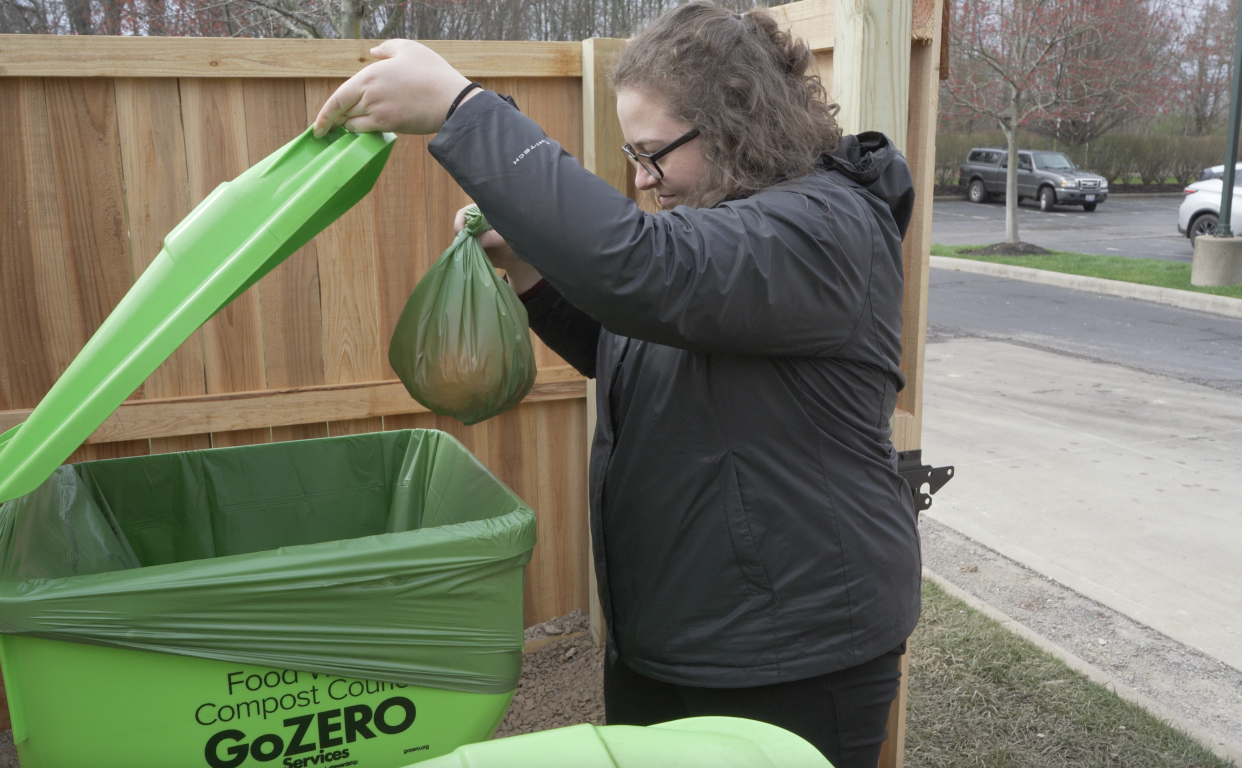Residents put composting program to use in New Albany

New Albany residents seem to be relatively enthusiastic about the citywide composting program, which was launched April 14.
Early figures suggest the free program is reaching conscientious homeowners who can discard their food waste in an environmentally beneficial way, said Anna van der Zwaag, a planner for the city and staff support for the Sustainability Advisory Board.
"It's been amazing, the turnout from residents," van der Zwaag said. "We didn't have a specific goal as a sustainability board on how much we wanted to compost, but we had great turnout from the people who have registered for the program.”
She said 250 residents and organizations have registered thus far.
Since the launch date, 3,600 pounds of food waste have been collected – the equivalent of more than 22 65-gallon bins diverted from the landfill, she said.
Collection sites, which are open all hours of the day, are behind Village Hall, 99 W. Main St.; All Saints Episcopal Church (which shares a parking lot with Temple Beth Shalom), 5101 Johnstown Road; and the public-serve department, 7800 Bevelhymer Road.
People may drop off their food waste directly into the container or use composting bags, van der Zwaag said.
"Village Hall definitely collected the most in waste," she said. "I think it’s the most centrally located, easily accessible."
City Council on March 1 approved a resolution to create the initiative, which will cost about $20,000 for services provided by GoZERO in Springfield.
GoZERO picks up the bins once a week and provides data points and a contamination report, which describes what types of materials aren't accepted in the containers, such as plastic, metal or yard waste, van der Zwaag said.
"So far we have had zero issues with contamination," she said.
Online register for the program is free at newalbanyohio.org/answers/waste-and-recycling/.
The benefit to signing up is that people can stay informed about updates and changes with the program, according to van der Zwaag, who added that the city this summer intends to send a survey to residents to measure the efficiency of the program.
“We’ve had very good sustainability efforts with our public service and community development departments for more than a decade, but this was our first foray into residential services beyond our recycling program," said Scott McAfee, New Albany's chief communications and marketing officer. "The composting program has been well received by the community so far and was a great way to jump-start the efforts of our Sustainability Advisory Board.”
Sara Ernst, conservation implementation specialist for the Franklin Soil and Water Conservation District, has said food-waste composting has a multitude of advantages for the environment.
“In a nutshell, it keeps those materials out of the landfill, and we’re experiencing less and less available space in the landfill,” Ernst said.
She said when it’s added back to topsoil, it greatly enriches the earth and holds moisture from storm water.
Homeowners don’t always have room for composting stations or materials or the motivation to do it themselves, so citywide collection is a great alternative, Ernst said.
“There’s really no downside to composting,” she said.
gseman@thisweeknews.com
@ThisWeekGary
This article originally appeared on ThisWeek: New Albany seeing success with food-waste composting program

